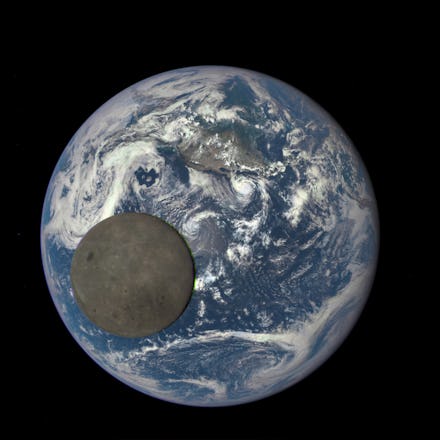New research suggests Earth is currently the warmest it's been in over 100,000 years

Considering each new month turns out to be the warmest on record, news that our planet may now be the hottest it's been in over 100,000 years, sadly, doesn't come as a surprise.
As the Associated Press reported, Carolyn Snyder, a climate policy official with the U.S. Environmental Protection Agency (EPA), approximated global temperatures stretching back a few million years as part of her doctoral dissertation at Stanford University. Her findings were published Monday in Nature.
To reach her findings, Snyder measured average temperatures over 5,000-year periods in Earth's history. She found the average for the current era is the warmest Earth has seen in 120,000 years — and the planet is on track to reach its hottest temperature in 2 million years.
"This is based on what happened in the past," Snyder said, according to the AP. "In the past it wasn't humans messing with the atmosphere."
Snyder clarified that her estimates are not exact. But if environmental factors remain constant, Snyder says we're looking at about seven degrees Fahrenheit or roughly four degrees Celsius of additional warning over the next few thousand years, according to the AP. That's about twice the recommended warming margin recommended in the Paris Climate Agreement of 2015.
Still, some scientists were skeptical of Snyder's findings. According to the AP, many who reviewed them said her records were out of line with other measurements; Pennsylvania State University's Michael E. Mann said her projections were "so much higher than prevailing estimates that one has to consider [the report] somewhat of an outlier," the AP reported.
Still, as climate change takes a clear and measurable toll on our planet and its residents, Snyder's findings certainly offer reason for pause.